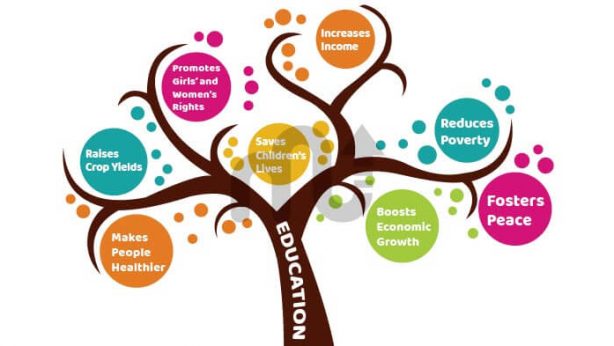Seminar for children to learn about the future
In this article, I will discuss the three facets of competencies that our children need to succeed in this ever-changing world:
1. intrinsic qualities,
2. personality attributes
3. hard skills
Holistic development of children will mean developing all the three simultaneously and from a very young age.
Having the privilege to work with schools and educators, and as someone with children of my own, it’s a topic that’s very close to my heart.
I shall examine each in turn and explain how they work in unison.
1. Intrinsic qualities: defining who we are
When you allow your children to freely explore and interact with their natural environment, they tend to be more confident and courageous as they grow up. These are attributes that cannot be learned from textbooks and are difficult to undo once learnt. While schools can help children reflect on these qualities, there must be greater awareness, both among people and societies, and we as parents, have a responsibility to nurture these character traits and make them a big part of every child’s development.
2. Personality and the power of SEL
Personality attributes are competencies through which we interact with the world. They are observable. Examples include communication, interpersonal skills, conflict management, problem solving, decision making, negotiation and persuasion. They reveal your personality and what others can see in you. Children need them to express their ideas, build sincere relationships, collaborate with others, solve problems and take decisions for themselves – skills they will rely on when they join the workplace.
According to the World Economic Forum’s (WEF) 2016 ‘New Vision for Education’ report, a meta-analysis of 213 studies showed that students who received social and emotional learning (SEL) instruction had scores that averaged 11 percentile points higher than those who did not. This is nothing new – evidence of the importance of personality traits has existed for some time.
Furthermore, in a survey conducted by Arc Skills in 2014, 3,040 parents of schoolchildren rated confidence, effective communication, leadership and problem solving as the most important attributes that they want their children to have. Parents are increasingly recognising the value of SEL and its long-term benefits, notably higher rates of academic achievement and employment. We all want our children to secure good jobs once they’ve finished school or graduated from university.
Immersive learning
Teaching these skills will require us to create highly immersive environments where children are put into situations or scenarios where they can demonstrate and hone these skills. This happens, for example, in team sports, so when your child plays cricket or netball, for example, they are interacting with others and working together to achieve desired results and outcomes. Therefore, academic teaching and structure need to be replaced by situations where students have to collaborate, resolve conflicts, innovate, think critically, solve problems, take risks, persevere, listen and communicate. And the earlier we start, the better.
3. Learning ‘hard’ skills
The problem we have is that we’re taking way too long in introducing and exposing our children to ‘hard’ skills such as data analysis or marketing, which ultimately get us into gainful employment. these different areas of knowledge. Rather than wait until they’re 16 or 17 years old, which is the point at which most adolescents start making career choices, we should start the process by nurturing these passions much sooner.
If your child shows an interest in computers, for example, consider taking them to one of the many free coding clubs that exist. These are a fantastic way to stimulate interest in a fun environment. And why can’t a child be introduced to the world of coding and marketing at the same time?
At a basic elementary level, we must encourage our children to try out various professions and experiment to see what they might like to pursue and what they clearly have no interest in. That’s effectively what we’re doing when we buy a medical, engineering or chemistry toy set for our young ones. However, we need to formalize this in educational institutions. Fortunately, we have the technologies to do this.
Working together
Given the rapid change in the world of work, industry must work closely with academia to introduce these courses as early as possible. Developing these skills at a young age will foster passion and creativity. The three elements I’ve spoken about, in unison, form a powerful triumvirate and our children will stand a much better chance of success in the global world of work if they are taught in this holistic way.
So, as they go through their formative years of education, I’d like to see our children build on their intrinsic qualities, personality attributes and ‘hard’ skills. Faced with the disruptive change that’s so endemic to our times, they will need to persevere and these attributes will make such a big difference to their futures. But if we don’t start early enough, once those career choices are made during teenage years, there’s often no turning back.
Next time, I’ll be discussing the ways in which we can deliver the above. Thanks for reading, and as always, I welcome your comments and thoughts on what you’ve read.

